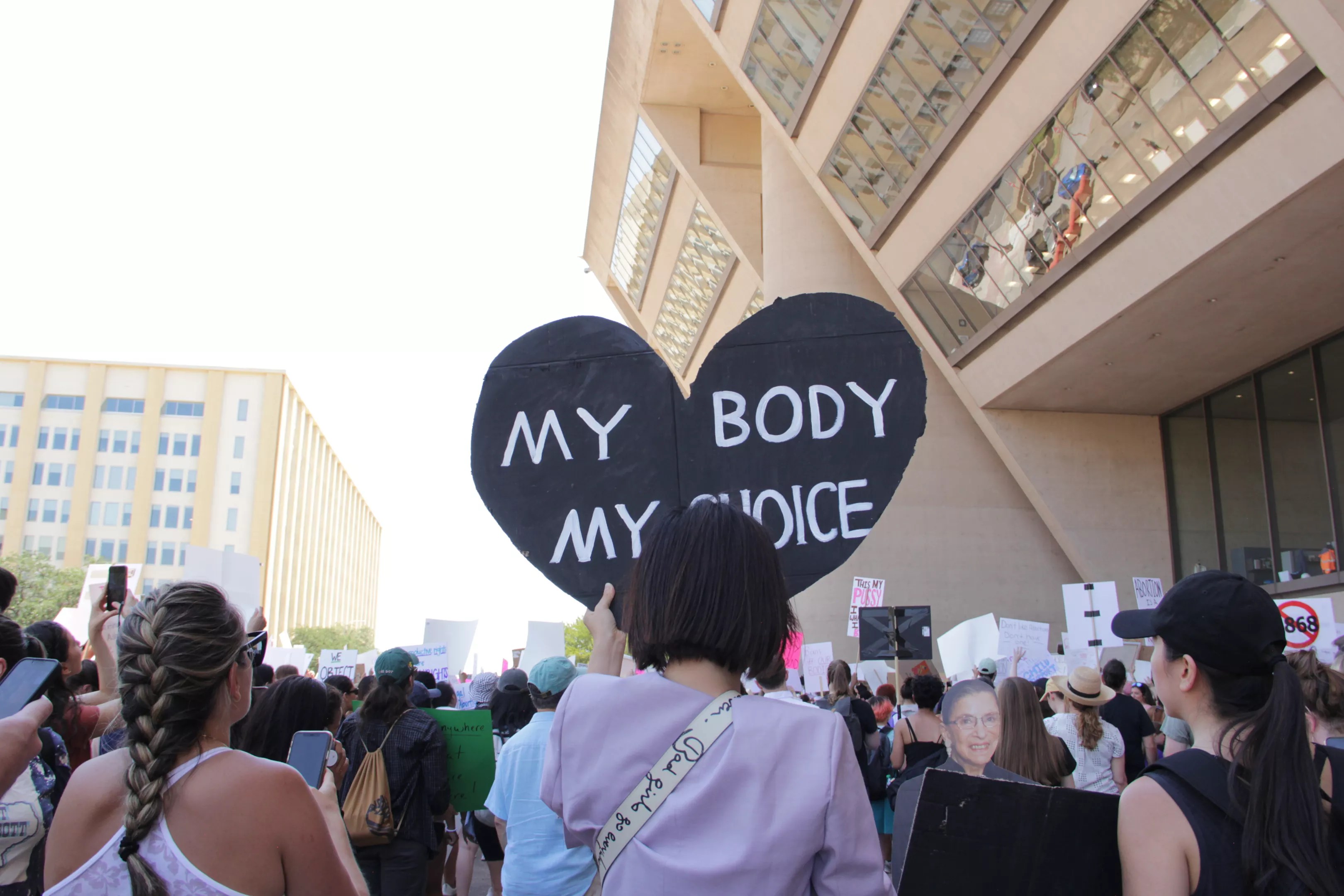
Kate Pezzulli

Audio By Carbonatix
Nearly two years have passed since Senate Bill 8 took effect in Texas. The state’s anti-abortion law touched off a landslide of similar bans nationwide and culminated last summer in the U.S. Supreme Court’s overturning of the landmark Roe v. Wade ruling.
Some alarming data has started to surface since then, including a reported 11.5% rise in Texas infant deaths.
SB 8 is etched into history as having forever changed the trajectory of abortion access in Texas, said D’Andra Willis, birth justice advocate and coordinator at The Afiya Center, a reproductive justice organization based in Dallas. It also molded the landscape for how abortion access would look beyond state lines.
Willis said that in the two years after SB 8, “We have not seen any positive outcomes, especially in Dallas.”
Instead, The Afiya Center has noticed an uptick in unwanted pregnancies, untreated maternal mental health issues and cases of Black maternal mortality and morbidity, she added.
Many reproductive justice advocates sounded the alarm following the passage of SB 8, which took effect Sept. 1, 2021. Some predicted a higher number of maternal deaths and warned that the state wasn’t prepared to handle a potential spike in births.
Now, nearly two years later, the consequences of the ban are becoming clearer.
Kamyon Conner, executive director of the Dallas-based Texas Equal Access Fund, called SB 8 a “devastating blow” to Texans in need of care. Since taking effect, more people have been confused about how to access abortions, where they can go and what to do next, she said.
“We’ve also seen a heightened level of desperation; we’ve had more text and call inquiries about medical issues related to pregnancy than we had prior to SB 8,” Conner said. “And I think we’ve also seen an increased attack on the bodily autonomy of Texans since the passage, with attacks against our trans community and medications, like the [mifepristone] case that happened here in Amarillo.”
“I think this has really created a healthcare crisis.” – TEA Fund Executive Director Kamyon Conner
Approximately 9,800 additional live births occurred in Texas from April to December 2022 than would’ve taken place had SB 8 not been enacted, according to a peer-reviewed analysis from the Johns Hopkins Bloomberg School of Public Health published earlier this summer. Researchers noted that it was likely the first study to investigate the effect the abortion ban has had on live births.
Many Texans have traveled to seek abortions post-SB 8, overwhelming providers in states where the procedure is still legal. Conner said some patients must wait several weeks to receive care in a clinic, which means they may also incur greater costs: “I think this has really created a healthcare crisis.”
Conner noted that abortion bans are inherently racist because they cause more health complications for people of color who aren’t able to access abortions. The Lone Star State continues to grapple with a relatively high number of maternal mortality cases, disproportionately affecting Black Texans.
“That means that those folks – and Black folks, in particular – are the ones most affected by these increased pregnancies,” she said. “They’re likely the ones that are not being listened to at their physician’s. Things are going undiagnosed; [medical professionals] aren’t taking into account people’s medical history when providing care for them because of the color of their skin.”
Although SB 8 provides an exception for pregnant patients whose lives are at risk, critics of the law say uncertainty abounds.
More than a dozen women and doctors sued the state over its strict anti-abortion statutes earlier this year, demanding clarity on what constitutes a life-threatening medical crisis. Confusion surrounding such exemptions has endangered patients’ lives, they argued.
But earlier this month, the Texas attorney general blocked a judge’s order aimed at allowing providers to perform abortions – without fear of prosecution – when the fetus won’t survive post-birth.
One recent study suggests that in the months after the fall of Roe v. Wade, doctors were confused and fearful, resulting in poorer care for patients. And Texas was home to the steepest decline in abortions countrywide in the year after Roe’s reversal.
Meanwhile, states like Idaho and Oklahoma have used SB 8 as a sort of blueprint for similar bans.
The way Willis sees it, Texas didn’t do enough overall to prepare for the inevitable boost in births and the effects of SB8 on people living in poverty. Voters should work to stay informed and keep reproductive justice in mind at the ballot box, she added: “Because we have the option to turn this around.”